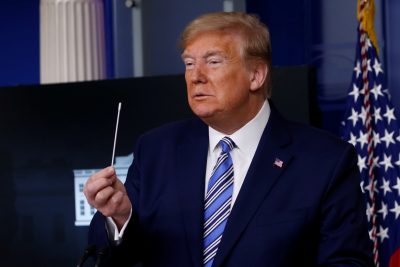Joseph S Nye, Harvard University
Under the influence of the information revolution and globalisation, world politics has changed in a way that means that even if the United States remains the largest power, it cannot achieve many of its international goals acting alone. But the Trump administration is failing this test. Its national security strategy (and budget) is focussed almost entirely on great power competition, particularly with China.
As the COVID-19 pandemic has shown, transnational interdependence is increasing. Regardless of potential setbacks to economic globalisation, environmental globalisation will continue to grow. Climate change and rising sea levels will affect the quality of life for everyone, but Americans cannot manage the problem alone. In a world where borders are becoming more porous to everything from drugs to infectious diseases to terrorism, nations must use soft power to develop networks and build regimes and institutions to address shared threats and challenges.
This is why the size of the United States will continue to matter in global politics. A classic problem with public goods (like clean air, which all can share and from which none can be excluded) is that if the largest consumer does not take the lead, others will free-ride and the public goods will not be produced.
The case for the largest country providing leadership in organising the production of global public goods remains stronger than ever, yet Trump’s National Security Strategy says little about these increasingly important transnational threats.
As technology expert Richard Danzig summarises the problem, ‘21st century technologies are global not just in their distribution, but also in their consequences. Pathogens, artificial intelligence (AI) systems, computer viruses, and radiation that others may accidentally release could become as much our problem as theirs. Agreed reporting systems, shared controls, common contingency plans, norms and treaties must be pursued as a means of moderating our numerous mutual risks.’
Tariffs and walls cannot solve these problems. The United States will have to work more closely with Europe, China, Japan and others such as Australia.
In this sense, power becomes a positive-sum game. It will not be enough to think in terms of American power over others. One must also think in terms of power to accomplish joint goals which involves power with others.
On many transnational issues, empowering others can help the United States to accomplish its own goals. The United States benefits if China improves its energy efficiency and emits less carbon dioxide. In this world, networks and connectedness become an important source of relevant power. In a world of growing complexity, the most connected states are the most powerful.
If the key to the United States’ future security and prosperity is learning the importance of ‘power with’ as well as ‘power over’, the response by the Trump administration to the current COVID-19 crisis is not encouraging. Every country puts its own interests first, but the important question is how broadly or narrowly those interests are defined. Trump has shown an inclination toward short-term, zero-sum transactional interpretations with little attention to institutions, reciprocity and a long shadow of the future. The United States has stepped back from its tradition of long-term enlightened self-interest.
Perhaps a new US administration might take a leaf from the success of the post-1945 American presidents that I describe in my book Do Morals Matter? Presidents and Foreign Policy from FDR to Trump. The United States could launch a massive COVID-19 aid program like the Marshall Plan. As Henry Kissinger recently argued, leaders should choose a path of cooperation that leads toward international resilience.
Instead of competitive propaganda, leaders could articulate the importance of ‘power with’ rather than ‘over’ others, and set up bilateral and multilateral frameworks to enhance cooperation. Rich countries should realise that new waves of COVID-19 will affect poorer states that are less able to cope, and that such a Third World reservoir will hurt everyone if it spills northward in a seasonal resurgence. The second wave of the 1918 Spanish flu pandemic killed more people than the first did. Both for self-interested and humanitarian reasons, the United States should lead the G20 in generous contributions to a major new COVID-19 fund that is open to all countries.
If an American leader were to choose such a policy, the pandemic could provide a geopolitical path to a better world. But if policy continues on the current path, the new virus will simply accelerate existing trends towards nationalistic populism and authoritarian uses of technology.
Joseph S Nye is University Distinguished Service Professor Emeritus and former dean at the Harvard Kennedy School. He is author of Do Morals Matter? Presidents and Foreign Policy from FDR to Trump (Oxford University Press, 2020).
This article is part of an EAF special feature series on the novel coronavirus crisis and its impact.

No comments:
Post a Comment